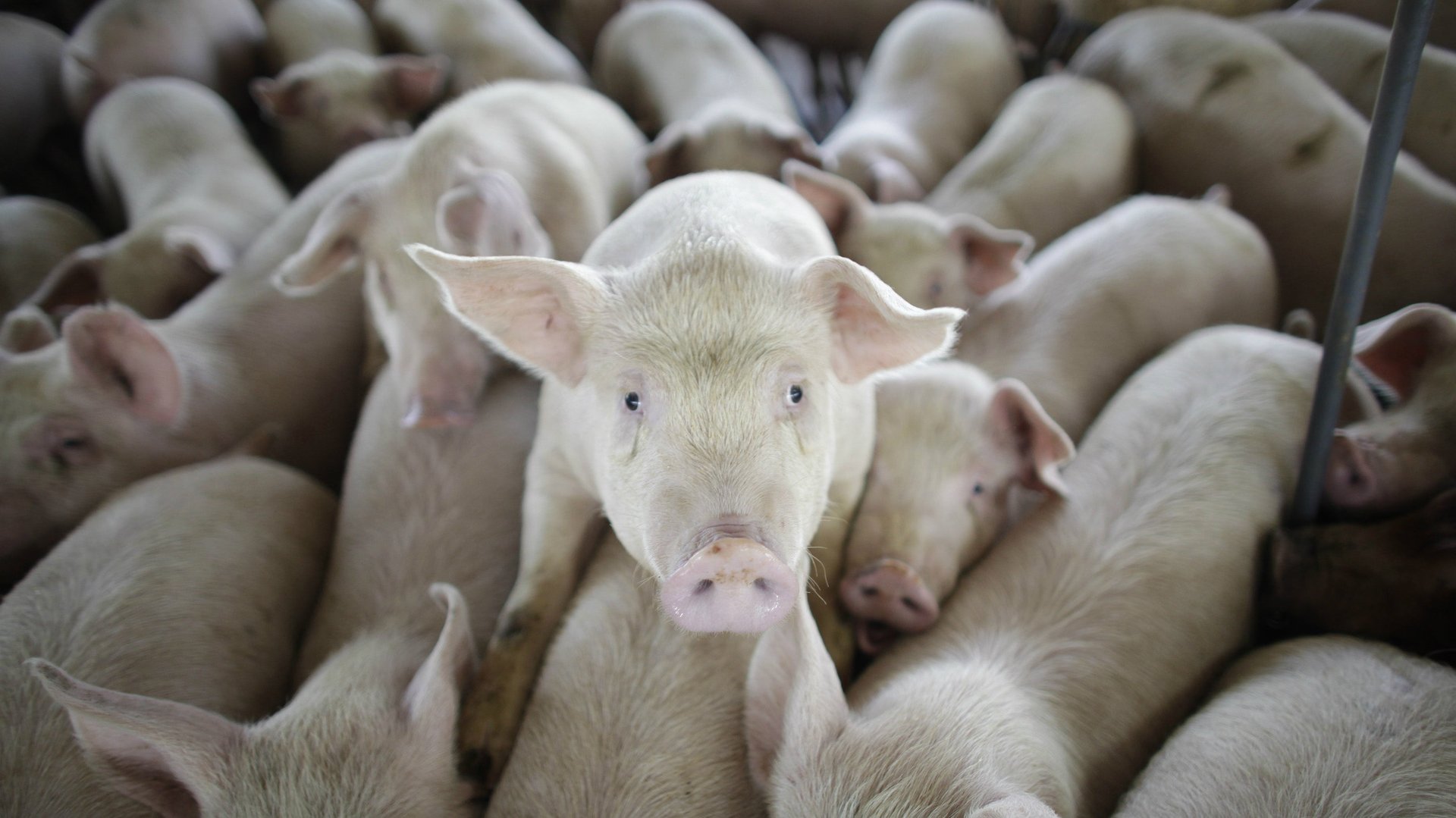Can pork be made kosher? Jewish scholars think it’s possible
For the first time in thousands of years, the power of modern technology may pave the way for kosher Jews to taste pork.


For the first time in thousands of years, the power of modern technology may pave the way for kosher Jews to taste pork.
It’s an idea that influential rabbis have been pondering in recent months as the scientists behind cell-cultured meat edge closer to the point at which their products will be ready for restaurants and grocery stores. Because of the way these scientists are cultivating animal cells to grow into high-tech meat—called ‘clean meat’ in the industry—it may allow them to circumvent religious laws that have long prohibited Jews from eating pork. It’s still a matter of debate among Jewish scholars, one that questions the very nature of food. But at least one influential rabbi, who once said he would be opposed to the idea, has signaled his views may be shifting.
Rabbi Menachem Genack is the CEO of the kosher division at the Orthodox Union, one of a handful of powerful Jewish groups that certify foods as kosher. He makes no attempt to muzzle his excitement for the new technology that allows scientists to take animals cells and grow them into meat in bioreactors, and in the past has even lauded the innovation as promising for the environment. But until recently, his enthusiasm has only been for chicken and beef products.
“Stem cells from a pig, that would not be kosher,” he told Quartz during an interview about the topic in January.
That view is being challenged by a prominent orthodox rabbi in Israel named Yuval Cherlow, of the Tzohar Rabbinical Organization, which in February launched its own kosher supervision authority. In an interview published in Ynet (in Hebrew) last week (March 21), Cherlow said clean meat pork would, in his view, be kosher. That’s because when the genetic material of a pig cell is used for food production “the cell, in fact, loses its original identity and therefore cannot be defined as forbidden for consumption.”
Clean meat is made when scientists essentially revert one type of cell into an earlier developmental stage, then, through a process called differentiation, trick it into becoming and acting like another type of cell. This process is what is leading Genack to reconsider his views. “It is something that we are thinking about,” he told Quartz this week.
The global kosher market, including meat, is worth more than $24 billion, and more than 40% of food in America carries the Orthodox Union’s “kosher” label. Muslims abide by a similar standard for food, called halal, which is now a market worth more than $1.6 trillion globally. Muslim scholars are also wrangling with the debate surrounding clean meat. It’s estimated that more than 1.6 billion people in the world are Muslim—about 23% of the total global population.
In the summer of 2017, Silicon Valley startup JUST (previously Hampton Creek) announced it was devoting resources to the creation of clean meat products, and its CEO, Josh Tetrick, said he wanted to get one to market sometime in 2018. That announcement was followed shortly by a video released by the company, showing how it used cells harvested from the tip of a chicken’s feather to make chicken meat.
In turning inedible cells into edible ones, previous laws defining what is kosher could be circumnavigated, Genach says. “What if they took hair from the pig? Hair is not edible. If they can produce it from the hair and generate the meat, what would its status be?”
There’s precedent for such a question. About a decade ago, the Orthodox Union was confronted with the question of whether an amino acid called L-Cysteine would be considered kosher. L-Cysteine is derived from duck feathers and is used as a dough conditioner and strengthener in breads, and has the added benefit of extending shelf life. But just how those feathers were procured became a question for religious scholars.
It’s easiest to strip birds of their feathers after first soaking them in hot water, and industry standards stop workers from using water that’s too hot, out of fear of pre-cooking the ducks. Industry standards set the temperature at 160-degrees Fahrenheit (71-degrees Celsius). However, religious texts address the issue of soaking a bird in hot water, and raise concern about the animal having not been properly killed or prepared first. Genack ruled the process was kosher because, once the amino acid was collected from the feathers, it was run through a purification process before being crystalized, and that the process made its use in foods permissible. Theoretically, he says, pork from the hair from a pig may be viewed similarly.
The issue is complicated by thoughts on other animals, though. In considering chicken meat, Genack has previously said meat derived from chicken cell wouldn’t be considered kosher unless the cells were harvested from a bird slaughtered in accordance with religious standards. The changing thought on the matter shows just how complicated it can become to navigate ancient beliefs through modern-day technology, all the way to the dinner table.